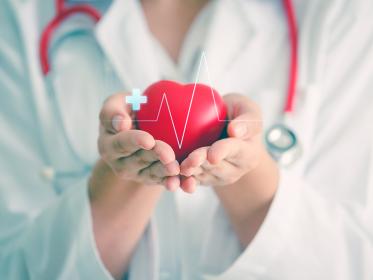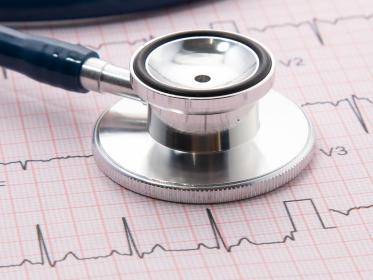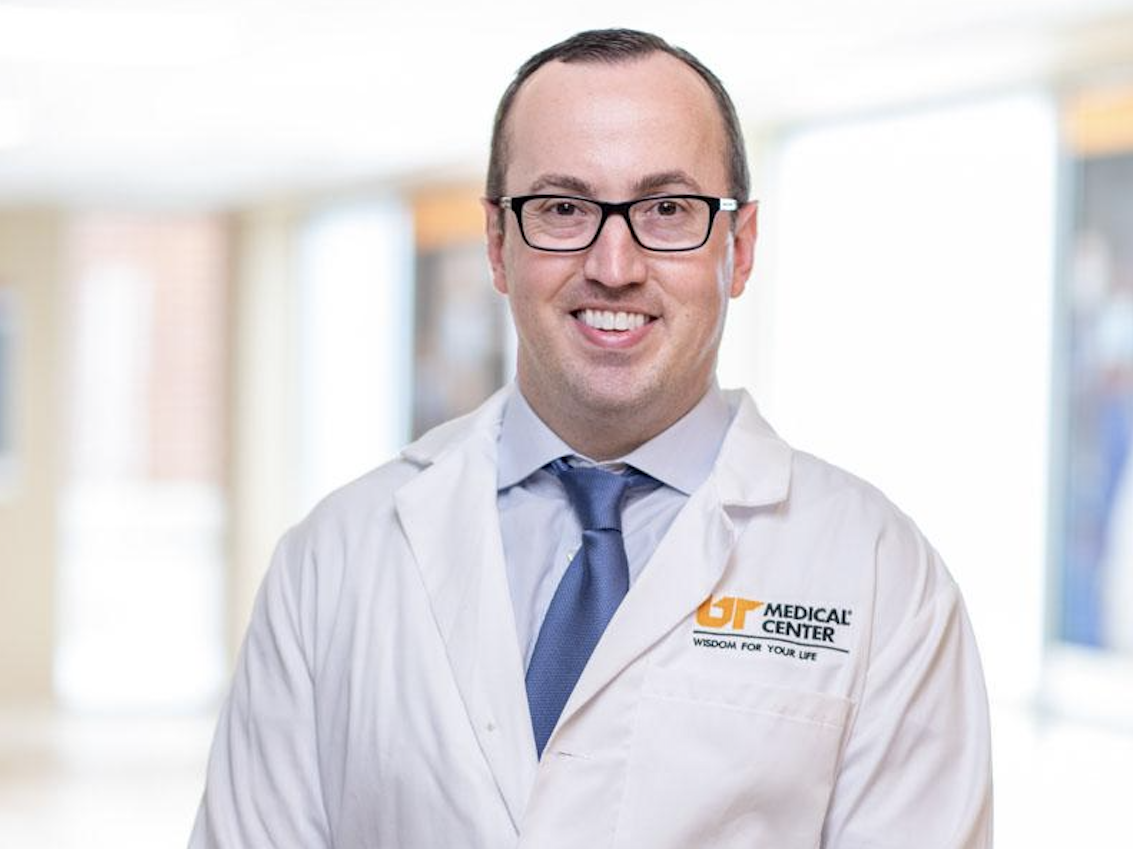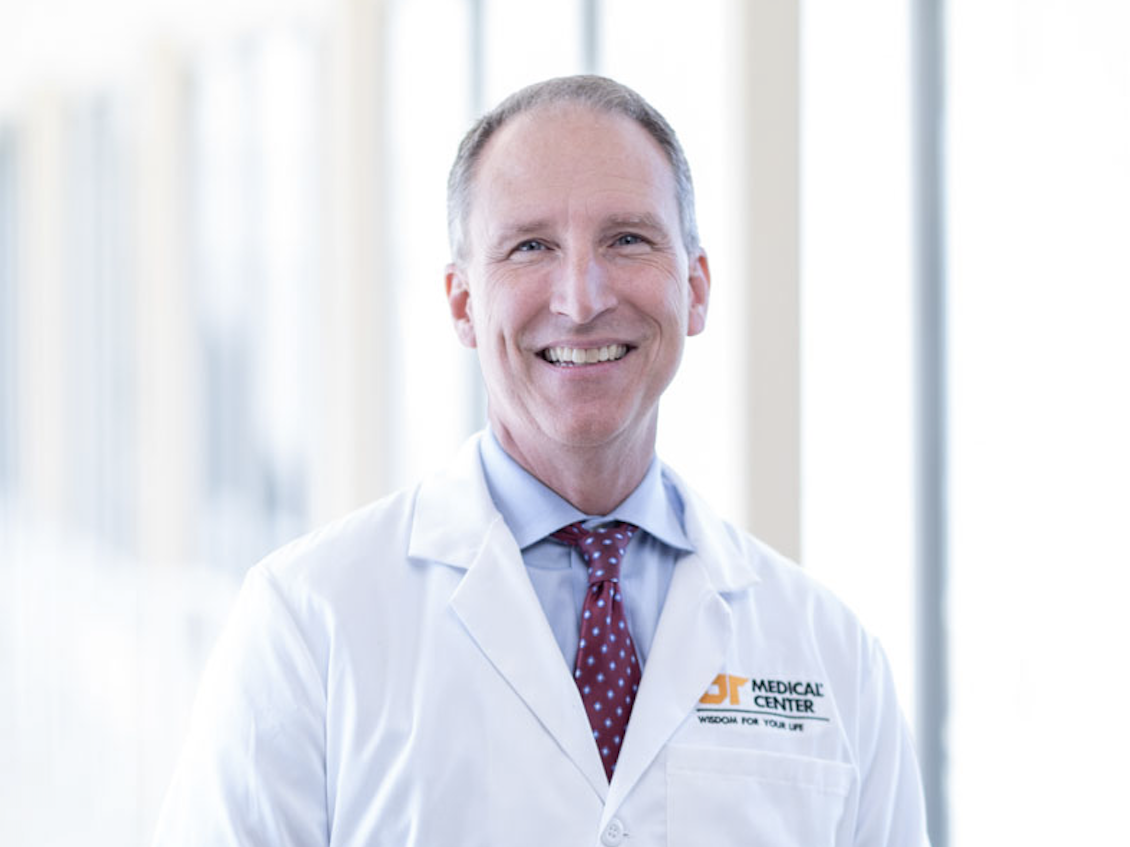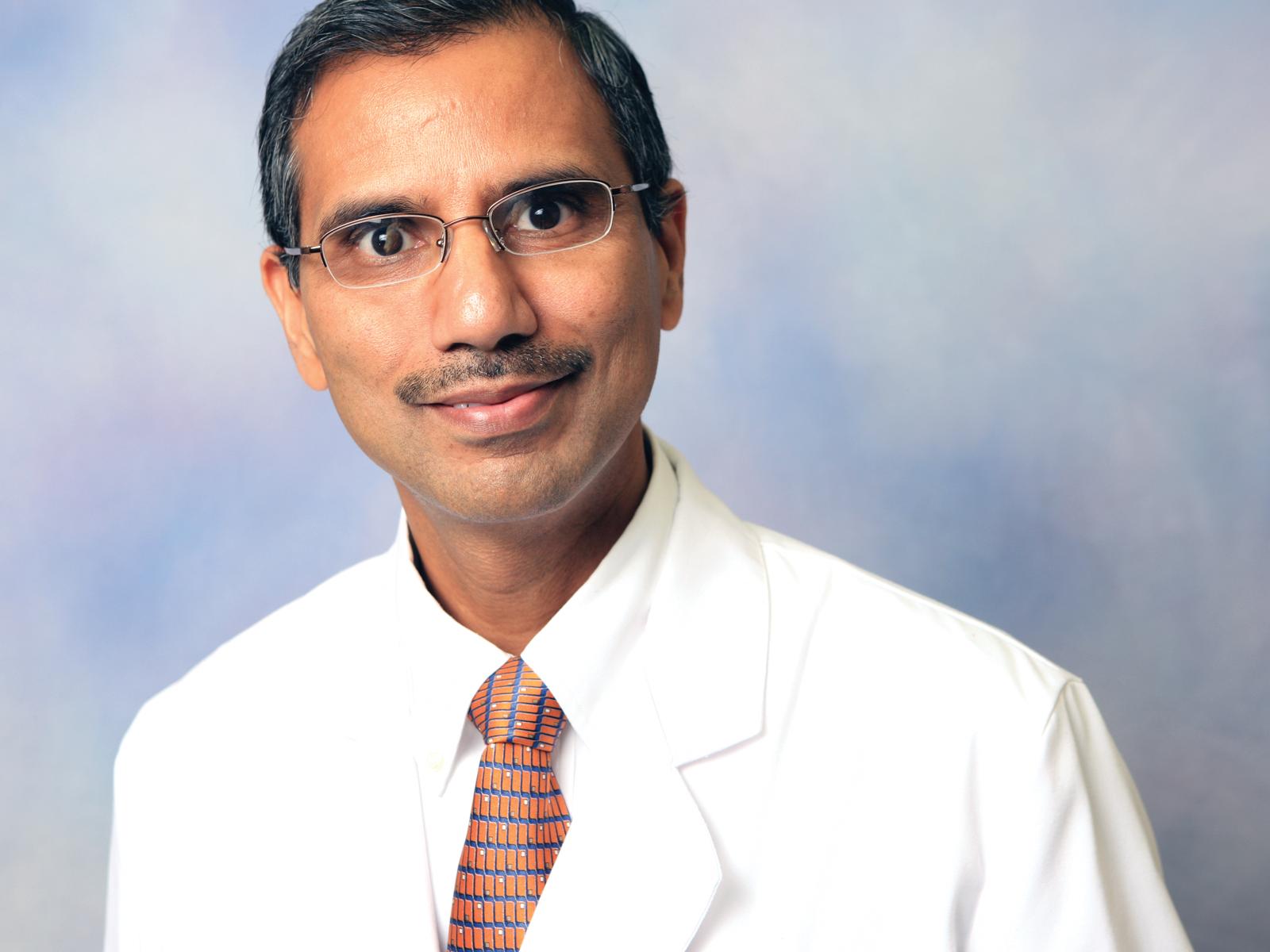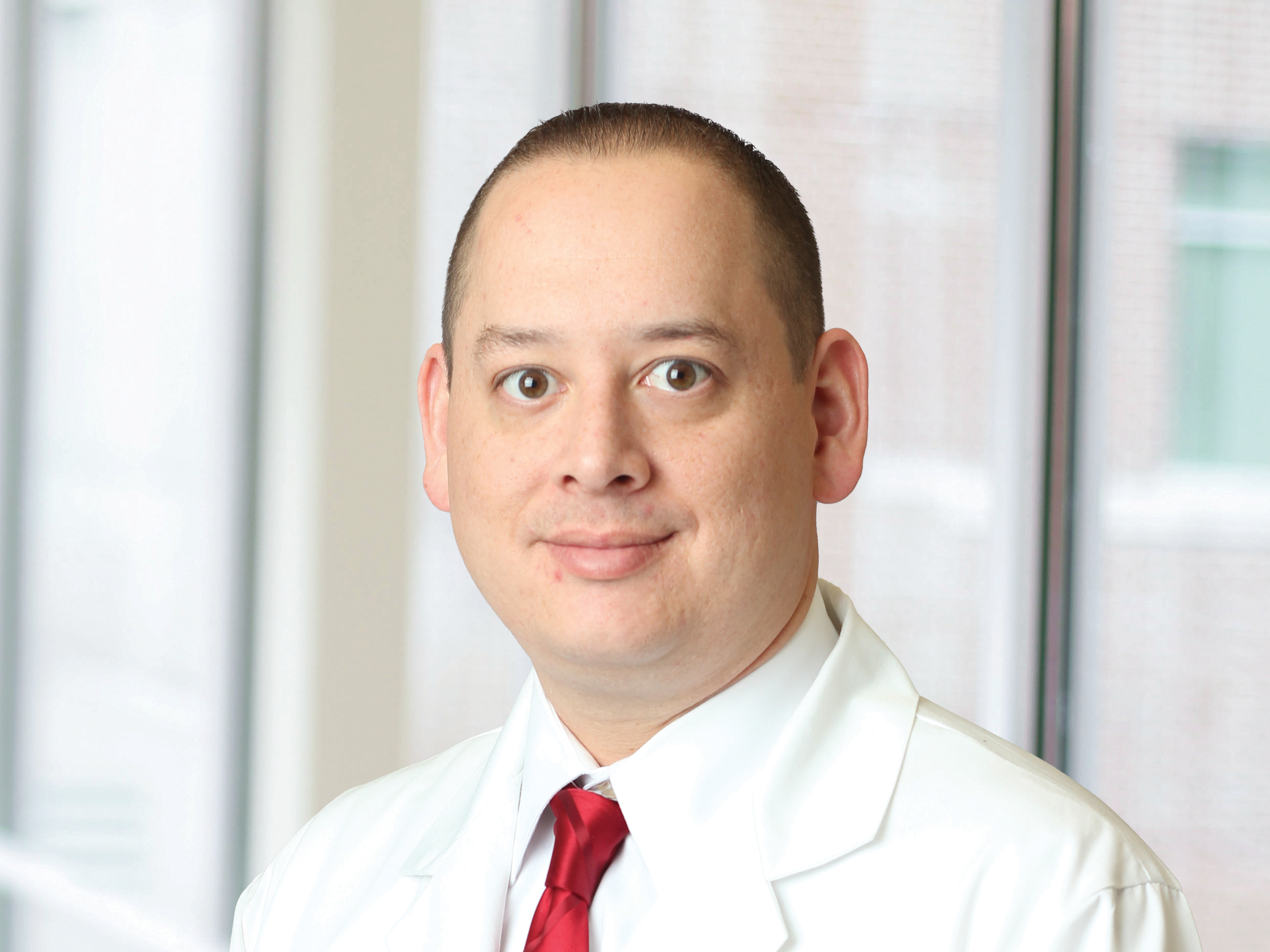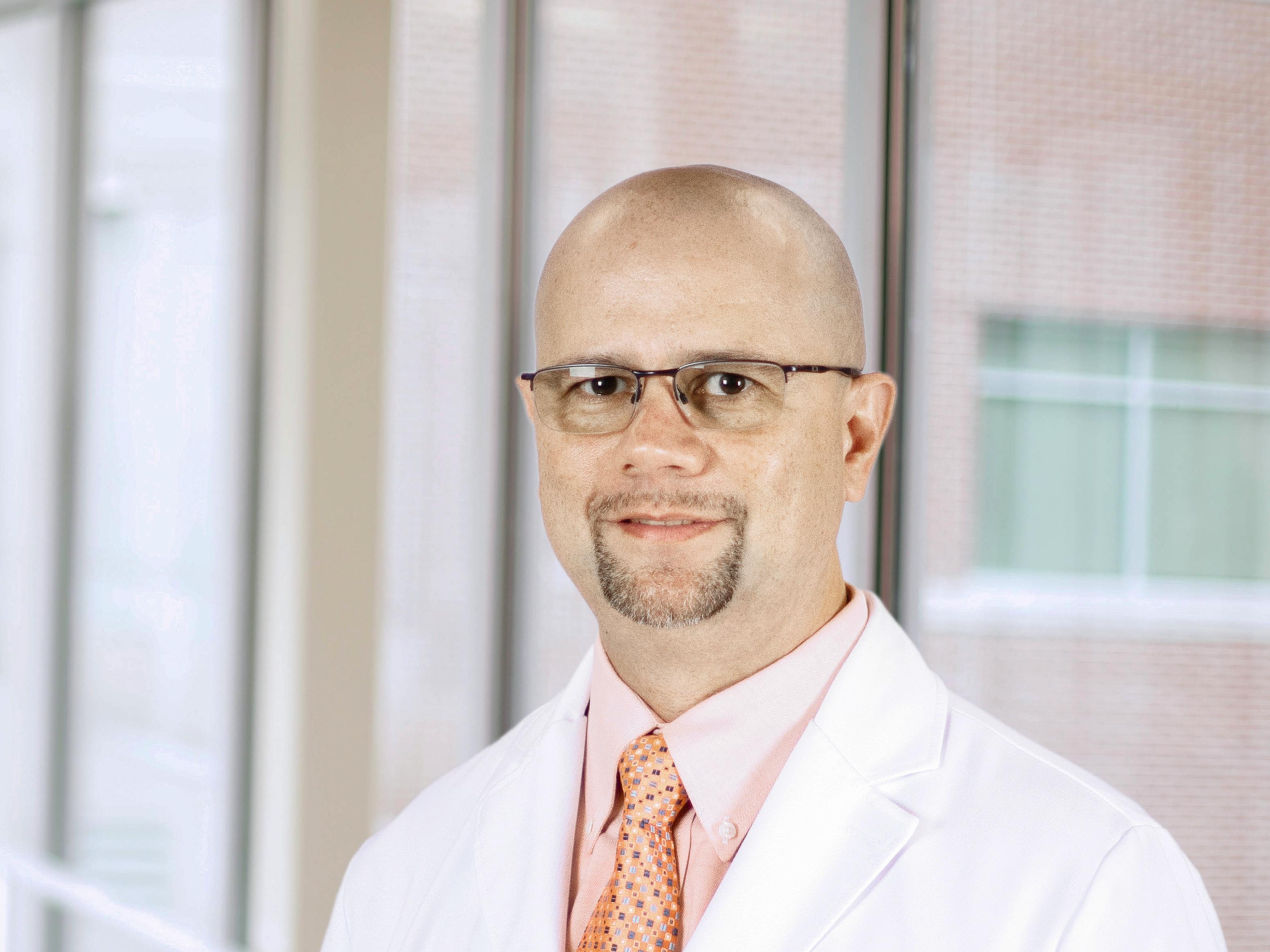What Does the Heart Valve Center Offer?
The Heart Valve Center at UT Medical Center offers comprehensive medical treatments for heart valve disease. Treatments vary, and sometimes require surgery. Heart valve surgery repairs or replaces nonfunctional or damaged heart valves. Heart valve surgery is also called valve replacement; valve repair; or heart valve prosthesis.
The Heart Valve Center at UT Medical Center offers the following treatment options:
- Medical treatments
- Open valve surgery
- Minimally invasive valve surgery
- Valvuloplasty
- Transcatheter aortic valve replacement (TAVR)
If your heart valve is too damaged to repair, you may valve replacement surgery, where a surgeon removes your old valve and puts a new one in its place. There are two main types of heart valve replacements available:
- Mechanical– Valve is made of man-made materials, such as cloth, metal (stainless steel or titanium), or ceramic. These valves last the longest, but you will need to take blood-thinning medicine, such as warfarin (Coumadin) or aspirin, for the rest of your life.
- Biological – Valve is made of human or animal tissue. These valves last 12 – 15 years, but your doctor may prescribe medications.
Other heart valve problems treated with minimally invasive surgery are:
- Aortic insufficiency
- Mitral regurgitation – acute
- Mitral regurgitation – chronic
- Mitral stenosis
- Mitral valve prolapse
- Pulmonary valve stenosis
- Tricuspid regurgitation
When Do You Need Heart Valve Surgery?
Our team of specialists at The Heart Valve Center review cases on an individual basis and recommend a specialized treatment plan. There are various reasons our surgeons recommend heart valve surgery, some of these reasons may include:
- Changes in your heart valve are causing major heart symptoms, such as chest pain, shortness of breath, fainting spells, or heart failure.
- Tests show that the changes in your heart valve are beginning to seriously affect your heart function.
- Your doctor wants to replace or repair your heart valve at the same time as you are having open heart surgery for another reason.
- Your heart valve has been damaged by infection of the heart valve.
- You have received a new heart valve in the past, and it is not working well, or you have other problems such as blood clots, infection, or bleeding.
Diagnosis of Heart Valve Disease
At the Heart Valve Center at UT Medical Center, we offer an array of diagnostic services that will be used in the evaluation process. We understand that every individual is different and heart disease is complex. That’s why we have multiple ways of determining the proper diagnosis, whether it is heart valve disease, valvular heart disease, aortic heart disease, or other conditions, you’re in the right place.
- Cardiac Catheterization
- Echocardiography
- Coronary Angiography
- Pulmonary function tests
- Carotid Imaging
- Transthoracic Echocardiography
- Transesophageal Echo
- Thoracic CT scan
- Abdominal CT scan
- Heart CT scan
- Pelvic CT scan
- Chest CT scan
- X-ray
- EKG
Talk to your doctor today and see if you might be a candidate for heart valve treatment.
Causes and Symptoms of Heart Valve Disease
Heart valve disease occurs when one or more heart valves do not function properly. The most common causes are congenital abnormalities, infection and age-related changes.
Symptoms of heart valve disease include:
- Shortness of breath
- Fatigue during exertion
- Cough (especially when laying down)
- Difficulty sleeping due to coughing
- Heart palpitations (racing)
- Chest pain or tightness
- Dizziness
- Heart murmur
- Swollen feet or ankles
If heart valve disease is left untreated, it can lead to heart failure, stroke, blood clots, sudden cardiac arrest and death.
What to Expect After Heart Valve Surgery
If your doctor has determined that one of your heart valves needs to be repaired or replaced, you’re sure to have lots of questions. Here’s what to expect as you recover in the hospital and when you return home.
What can I expect after surgery?
- Pain management
- Rest
- Instructions on when you can shower
- Dietary guidelines
- Back-to-activity instructions
- Follow-up care
What will happen immediately after surgery?
You will be taken to the intensive care unit (ICU). Typically, your family will be able to visit with you briefly while you are there. You will be moved to a hospital room when your surgeon decides you no longer need intensive care. Patients who have a minimal incision procedure typically spend less time in the ICU after surgery.
What can I expect when I wake up?
Your incision will be covered by a large bandage and a respirator will assist you with breathing. The breathing tube connecting you to the respirator will be removed when you are able to breathe on your own. You will also have intravenous (“IV”) lines and a urinary catheter, and you will be connected to several different types of equipment that will be monitoring your condition after surgery.
How much pain will I have when I wake up?
With any surgery, pain is to be expected. Keep in mind that everyone experiences pain differently. Generally, patients report having mild to severe pain in the chest.
How much pain you feel will also be influenced by the approach your surgeon is using. The traditional open-chest procedure typically results in more pain due to the length of the incision as compared to the minimal incision surgery.
How will I feel after surgery?
Expect to feel stiff and sore from the incision. You may also experience some pain, pressure, or a burning sensation in your chest and when the chest tubes are removed. Sitting up, coughing and walking may also cause some pain at first. You may also have some pain in your neck or groin area from additional small incisions. You will be lying down during surgery and in the ICU, which may cause discomfort in the muscles in your chest, shoulders and back. You will be asked to cough and take deep breaths to clear fluid from your lungs, which may be uncomfortable at first. The line that was placed in your artery may disturb nerves and cause numbness in the chest, leg, arm or hand. While it may take several months for feeling to return, this numbness is temporary.
When can I expect to be back on my feet?
Most patients report that they feel better and a bit stronger every day. Patients who have had MIVS are generally able to walk earlier than those who have had traditional open-heart surgery. You will be encouraged to sit up and begin walking the day after surgery.
What about eating?
Within 1 to 3 days after surgery, your doctor will probably prescribe a liquid or light diet that restricts the amount of salt you consume. Since MIVS patients are encouraged to return to normal activities as soon as possible, you may be eating light meals the day after your surgery.
When will I be able to leave the hospital?
Patients are usually able to return home within 5 to 10 days after surgery. Those who have minimal incision valve surgery typically are able to return home sooner (often in 3-4 days) than traditional open-heart surgery patients.
What should I be doing to take care of my incision when I go home?
The incision should be kept clean. You should use only water and regular soap (not perfumed soap or body wash) to clean the area of your incision. Use your hand or a washcloth. You should not rub the incision until the skin has completed healed.
After cleansing, the incision should be kept dry. Unless you have been instructed otherwise, do not apply any ointments or dressings to the incision.
When will I be able to bathe or shower?
You will be limited to sponge baths at first, because it will be important to keep your bandages dry, but if you have an MIVS procedure, you will soon be able to take a shower. When your incision is healing as expected (usually within only 3 to 4 days), your surgeon may give you permission to take quick showers but you should not bathe or soak in the tub right away. When you shower, protect your incision by keeping your back turned to the shower spray. Avoid using extremely hot water because it may cause you to feel dizzy.
What kind of problems should I report to my surgeon?
Call your surgeon if you notice:
- Oozing or an increase in drainage from the incision
- Increased warmth or redness around the incision
- Increased opening of the line of the incision
- A fever of more than 101 degrees Fahrenheit (38 degrees Celsius)
- Increased tiredness
- Shortness of breath
- Abnormal pain or other symptoms not relieved by your medicine
If you are a diabetic, you should call the doctor if blood sugar levels vary more than usual.
Will I have a scar?
You should expect some scarring. With openchest surgery, you will have a sizeable scar in the middle of the upper chest (6-12 cm with open chest ). The smaller incisions associated with a minimal incision procedure mean smaller scars (2-6 cm with the minimal incision approach), and their locations also make them less noticeable.
Will the doctor order changes in my medication?
Your doctor will probably prescribe several medications. You will be told which of these new prescriptions will be needed only until you recover from surgery, and which medications you will need to take for the rest of your life. When you return home, take only the medicines that the doctor ordered when you were discharged from the hospital. Talk to the doctor about the medicines you were taking before you had surgery, and do not continue to use them unless the doctor tells you to do so. Some over-the-counter medicines can cause problems with your prescription medications. To avoid side-effects, you should also talk to the doctor before using cold or cough medicines, vitamins, or other nutritional supplements. Your medications are prescribed specifically for you. You may not be given the same medications as someone else you know who has a heart condition.
Is it safe to ride as a passenger in a car?
Yes. This is another activity that you will probably resume earlier if you have had MIVS. However, during the first few weeks after surgery, you should stop every hour or two to take a short 5 or 10 minute walk to improve the circulation in your legs and prevent swelling.
When will I be able to return to work?
Your doctor will tell you when you can return to work. Most patients who receive minimal incision valve surgery need about 3 weeks to recover, some faster, some longer depending on the type of work they do. Patients with traditional open heart surgery generally require more time to recover, on average between 8 to 10 weeks. Move at your own pace, easing back with a lighter work schedule and increasing your hours gradually.
What about other activity?
Your doctor will discuss your activity level with you before you leave the hospital. Typically, MIVS patients return to normal activity more quickly than those who have had traditional open-heart surgery. You will be given guidelines to follow during the first few weeks after surgery or until your surgeon has cleared you:
- Increase your activity level gradually, moving at your own pace
- Spread your activities throughout the day and don’t try to do everything at once
- Take a walk everyday
- Do not stand in one place for more than 15 minutes
- Do not lift anything that weighs more than 10 pounds
- Do not push or pull heavy objects
- Plan your activities in a way that limits how many steps you have to climb during the day
- Pause to rest if you become tired
- Do not hold your arms above shoulder level for longer than it takes to brush your hair or reach for something
- Get enough sleep
- Pace yourself, and consult your surgeon if you have any questions
Will I need cardiac rehabilitation?
Your doctor may recommend cardiac rehabilitation as a way to safely ease you into a supervised exercise program designed to improve your heart health. You will learn more about your condition and lifestyle strategies designed to prevent progression of heart disease. Most insurance programs cover cardiac rehabilitation services.
What kind of outcome can I expect?
The answer depends upon many factors and what type of procedure you are having. Ask your surgeon what you can reasonably expect.
Who will provide follow-up care after surgery?
The cardiologist or physician who referred you for surgery will provide the care you need. You should schedule an appointment to see your doctor 6 to 8 weeks after surgery. The doctor will tell you how often you will need to come to the office for follow-up care.
After they are fully recovered from heart valve surgery, most patients need to see the cardiologist at least once a year. Risk factors, such as high blood pressure or cholesterol, smoking, and obesity, should be monitored.
